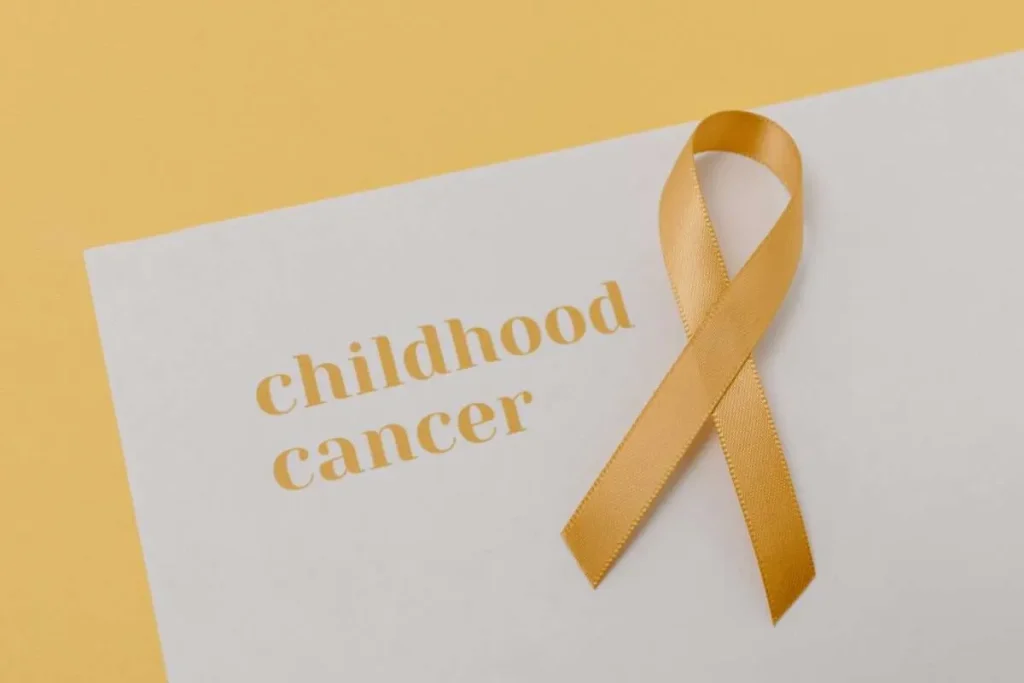Last Updated on November 14, 2025 by

Childhood cancer is a big worry in the United States. The rates vary from state to state. Recent numbers show that pediatric cancer statistics point to 186 to 193 cases per million kids in 2016“2018.
At Livhospital, we aim to offer top-notch care for kids with cancer. The fight against childhood cancer is complex, but knowing the most common childhood cancer types is key. Leukemia, brain tumors, and lymphomas make up a large portion of cases, and understanding them helps in earlier diagnosis and better treatment.
We’ll look at the states with the highest rates and also explore the most common childhood cancer patterns to give families better insight into the challenges ahead.
It’s important to know about childhood cancer in America to help kids. Looking at the numbers and trends shows it’s a big health issue. We need to act fast to help these young patients.
Between 2016 and 2018, childhood cancer cases went up. Pediatric oncology statistics show that more kids are getting cancer. We’re studying these numbers to improve care for our young patients.
The increase isn’t the same everywhere. Some places have more cases than others. This means we need to focus our efforts and create plans for each area.

By 2025, we expect a lot more cases of childhood cancer. Accurate forecasting helps us get ready and use our resources well. We’re working to make sure we can handle the expected number of cases.
The Northeast has more cases of pediatric cancer than other areas. States like New Hampshire, DC, and New Jersey have the highest rates. We need to find out why this is happening to help more kids.
Some Western states also have high rates of childhood cancer. Looking at pediatric cancer rates in these places can help us understand why. We’re researching ways to improve care for kids with cancer.
By studying childhood cancer in America, we can tackle the challenges and find new ways to help. Our aim is to give the best care possible, meeting international standards.
Childhood cancer rates vary a lot from state to state. Some states see a lot more cases of childhood cancer than others.
California has a high rate of childhood cancer. Leukemia is the top cancer in kids there, followed by brain tumours. We help international patients get top-notch care in California.
California’s advanced medical centers play a big role. They offer the latest treatments and help spot cancers early.
New York also sees a lot of childhood cancer. The state’s pediatric cancer rates are among the highest. Leukemia and brain cancers are the most common, just like nationwide.
We team up with top cancer centers in New York. This ensures kids get the best treatments.
Other states, like Florida, Texas, and Pennsylvania, also have high rates. These states have big populations and sometimes environmental factors that raise cancer rates.
We support families in these states with tailored help.
Nationwide, leukemia is the top childhood cancer. It makes up a big part of all childhood cancer cases. We focus on the latest leukemia treatments to help our patients.

Understanding why childhood cancer rates vary by region is key. We aim to know the risk factors in each area. This knowledge helps us fight childhood cancer more effectively.
Environmental factors greatly affect childhood cancer rates. States face different levels of harmful substances like pesticides and radiation. For example, places with lots of farming might see more pesticide use, linked to some cancers in kids.
Key environmental factors include:
Socioeconomic status and healthcare access also play big roles. Poorer areas often face less access to healthcare. This can mean kids get diagnosed and treated later, affecting their chances of survival.
Healthcare access differences also mean kids get varying levels of care. Not all places have top-notch pediatric cancer centers. This leads to different treatments and outcomes.
The complex interplay between these factors shows we need a broad approach to tackle regional disparities in childhood cancer.
By looking at the unique challenges of each region, we can craft better strategies. These strategies aim to lower childhood cancer rates and improve outcomes.
Childhood cancer death rates differ a lot from state to state in the U.S. This shows we need to look closely at why these differences happen. Knowing how many kids get cancer and how many survive is key to understanding the problem.
Survival rates for kids with cancer vary a lot from state to state. Some states have better survival rates for certain cancers, while others do not. We looked at survival rates by state to find patterns.
Childhood cancer is the top cause of death from disease in kids. This makes it a big worry for public health. Pediatric cancer statistics show it’s the most common cancer in kids.
Top medical centers are key in finding and treating childhood cancer. They have the latest tools and experts in pediatric cancer. Finding cancer early and accurately is vital for good treatment and survival.
“The presence of advanced medical centers can significantly impact detection rates and survival outcomes for children with cancer.”-Research shows
Cancer registry systems differ from state to state. This can make childhood cancer data less reliable. Having the same system everywhere is important for tracking cancer trends.
We want to help kids with cancer by giving them the best care and support. By understanding why some states have worse cancer survival rates, we can find ways to help more kids survive and live better lives.
Childhood cancer treatment has seen big improvements, mainly for leukemia. At Liv hospital, we aim to offer top-notch healthcare for international patients. We focus on using the latest treatments and care models that follow global standards.
Leukemia is the most common cancer in kids, needing new treatments. Our place uses advanced therapies like targeted and immunotherapy. These help kids get better faster. Studies show survival rates go up with these new methods.
Teamwork is key in fighting childhood cancer. Our experts work together to give kids the best care. We follow global best practices and use the latest stats to improve cancer care.
At Liv hospital, we’re all about giving kids with cancer the best care. We use the newest treatments and support services for international patients.
Leukemia is the most common childhood cancer. It makes up a big part of all pediatric cancer cases.
Childhood cancer is a big worry in the United States. The rates vary from state to state.
California and New York have some of the highest rates. Other Northeast and Western states also see a lot of cases.
Many things affect these rates. Environmental factors, such as how rich or poor a family is, and healthcare access are key.
New medical care has greatly helped kids with cancer. New treatments and therapies have raised survival chances.
Leukemia is a top cancer in kids. Its treatment has gotten much better with new methods and therapies.
Cancer registries are vital for tracking cancer in kids. But differences in these systems can affect how accurate the numbers are.
Team care is key in fighting childhood cancer. It brings together experts from different fields for the best care.
Top medical centers help find more childhood cancer cases. They have the latest tech and know-how.
Centers for Disease Control and Prevention (CDC). (2018, June 22). Geographic Variation in Pediatric Cancer Incidence ” United States, 2003“2014. MMWR Weekly. https://www.cdc.gov/mmwr/volumes/67/wr/mm6725a2.htm
Subscribe to our e-newsletter to stay informed about the latest innovations in the world of health and exclusive offers!